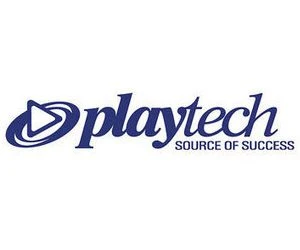‘Leave the tech to us’, says Playtech

Playtech’s ambitions to extend its control of the online gambling software supply market were made plain at the promotional event for the company’s Academy services last week at ICE, although the igaming giant has many circles to square, writes Scott Longley.
Whether the term used is convergence, multi-channel or the newly fashionable omni-channel, the company’s goal is to provide a one-stop-shop for all the needs of its customers.
As Mor Weizer, chief executive, told the assembled journalists, whatever the supply question “we believe that Playtech is the answer”.
That answer currently extends across all online products and into land-based gaming with the Videobet gaming machine offering.
Moreover, with industry gossip putting Playtech in the frame as the most likely buyer of OpenBet – which is currently the subject of a semi-public auction being undertaken by private-equity owners Vitruvian – then it’s easy to envisage the company extending its sports betting reach significantly in the coming months.
Playtech’s pitch to both current and prospective customers would appear to be quite simple. As Weizer said last week: “The gambling business is three things – brand, marketing and technology. Operators should concentrate on the first two of these and leave the technology to us.”
Without saying it, the word that springs to mind here is Trafalgar, as in the project at William Hill. The tempestuous relationship between the two companies aside, you can see why Playtech would be nervous of any of its customers ‘heading off-piste’ when it comes to their supply chain.
Attempts by operators to either diversify their supplier base or bring elements of their infrastructure development in-house would run counter to Playtech’s global aims.
To hammer home the point, Weizer concentrated at ICE on talking about what he sees as the industry’s deficiencies with regard to its use of data and how he feels Playtech can help.
It is here that a blurring of lines between technology and marketing occurs; and it is one that confuses even Weizer’s own summation of where the split of core competencies between operator and supplier should lie.
As a recent note from analysts at Morgan Stanley put it, while a large part of Playtech’s proposition is indeed the technology platform, then another important element of the business is the PTTS gaming services arm which, as the note says, “is more similar to an operator business in structure”.
“While it is a diverse range of businesses, its earnings are largely a function of the success of the operators that it advises,” says Morgan Stanley.
“This covers everything from a full white label service (such as the recently announced Sun Bingo deal), through to technological capability advice (such as with Ladbrokes) through to affiliate marketing businesses.”
Handing across the crown jewels
Data is vital to PTTS, and it’s what Weizer says “keeps me busy trying to convince operators to make better use of the huge amounts of data they have at their disposal; data which they barely use”.
Data is indeed at the heart of the ongoing debates and developments regarding personalisation and customer engagement.
For Weizer the online gaming industry is “lagging behind” other ecommerce sectors: “People now understand they have to recalibrate because of the big data issue,” he says. “Operators will have to focus. They need to have the tools to use the data.”
Naturally enough, Weizer thinks that Playtech has these tools. As he says, “no other company has as much insight into understanding churn rates, player values and customer profiles”.
“It’s all about data and understanding the data you have,” he points out. “If you know your customer, know what they are like, what features, then you are in a far better position to offer them a better experience.”
A need for more customer education perhaps lies behind the Academy developments. The company says it is an initiative that it has been pioneering for the past two years and which it hopes will come together as a complete licensees’ training unit later this calendar year.
Such efforts are designed, at least in part, to embed Playtech within each licensee to such an extent that it will put paid to any thoughts of in-sourcing.
The analyst team at Morgan Stanley noted that in meetings Playtech said it was not worried about the prospects of more customers looking at in-sourcing.
However, they did note that the company said it believed all operators must have “some differentiated content in order to compete”.
This lays bare the contradiction at the heart of Playtech’s attempt to be all things to all men. The huge spread of licensees makes it obvious that Playtech cannot provide unique content to all.
As the Morgan Stanley note almost comically put it, “the company is not seeing any downwards pressure on fee levels, in fact one licensee voluntarily increased the fee level it pays to Playtech in order to benefit from the newest content and to share the upside from growth”.
Such examples of development pipeline queue-jumping are sure to breed resentment at those operators left running with the sub-optimal older content.
Meanwhile, Playtech’s efforts to help operators understand and benchmark their customer data against the example set by the company’s more successful licensees would similarly seem to suffocate rather than stimulate attempts to innovate or differentiate.
Lastly, any acquisitions that furthers Playtech’s sports betting supply ambitions will only increase the dependence of some major clients who might then look either to in-sourcing or other suppliers in order to achieve diversification and reduce single-supplier reliance.
How Playtech attempts to square these various circles will likely be one of the more intriguing stories for this year. Next year’s Academy presentation at ICE will no doubt inform us of some of the answers.
